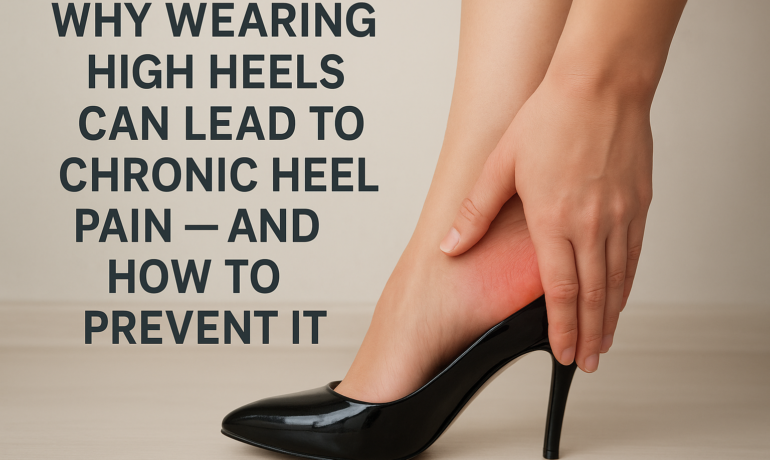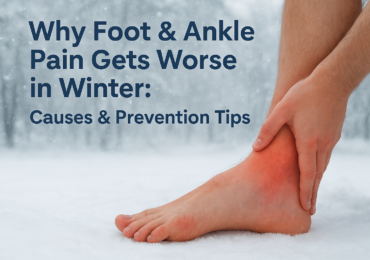High heels are a fashion statement for many, adding elegance and confidence. However, wearing them frequently can cause chronic heel pain. The pain may start as mild discomfort but can gradually turn into long-term foot problems that affect daily mobility. Let’s explore why this happens and what you can do to prevent it.
How High Heels Affect Your Feet
When you wear high heels, your body weight shifts forward, placing excess pressure on the heel bone and forefoot. This unnatural alignment affects your posture and can strain the ligaments and tendons that support your feet. Over time, this imbalance leads to persistent heel pain and inflammation.
Key effects of wearing heels include:
Altered foot mechanics – Heels change how you walk and stand, causing muscle imbalance.
Reduced shock absorption – The elevated heel limits cushioning, increasing pressure on the heel pad.
Tightened Achilles tendon – Constant elevation shortens the tendon, leading to stiffness.
Plantar fascia strain – Overstretching of the tissue under the foot can cause plantar fasciitis, a common reason for heel pain.
Common Conditions Caused by High Heels
Wearing heels regularly can contribute to several orthopedic problems, including:
Plantar Fasciitis – Inflammation of the tissue under the heel.
Heel Spurs – Bony growths that form due to constant strain.
Metatarsalgia – Pain in the ball of the foot.
Achilles Tendonitis – Inflammation of the tendon due to shortened calf muscles.
Back and Knee Pain – Misalignment affects overall posture and joints.
Preventive Measures to Avoid Heel Pain
You don’t need to give up heels completely—just wear them smartly! Follow these preventive steps to protect your feet:
Choose supportive footwear – Opt for wedges or heels below 2 inches.
Use cushioned insoles – Add padding to absorb shock and reduce stress.
Stretch regularly – Stretch your calves and Achilles tendon daily.
Limit heel usage – Avoid wearing heels for long hours or on uneven surfaces.
Alternate with flats – Give your feet rest by switching to comfortable shoes.
Maintain healthy weight – Reducing extra pressure on your heels can ease pain.
When to See a Specialist
If heel pain persists for more than a few weeks or interferes with walking, consult an orthopedic doctor. Ignoring early symptoms can lead to chronic inflammation or heel spurs.
For expert evaluation and advanced treatment, consult our Dr. Aditya Somayaji – Ortho, Best Orthopedic Surgeon in Kondapur. He specializes in diagnosing and treating foot and ankle pain with personalized care.
Conclusion
Chronic heel pain from wearing high heels is preventable with smart footwear choices, stretching, and timely medical care. Prioritize comfort over style for long-term foot health.
Protect your feet today—small changes can prevent years of discomfort and restore your confidence with every step.



